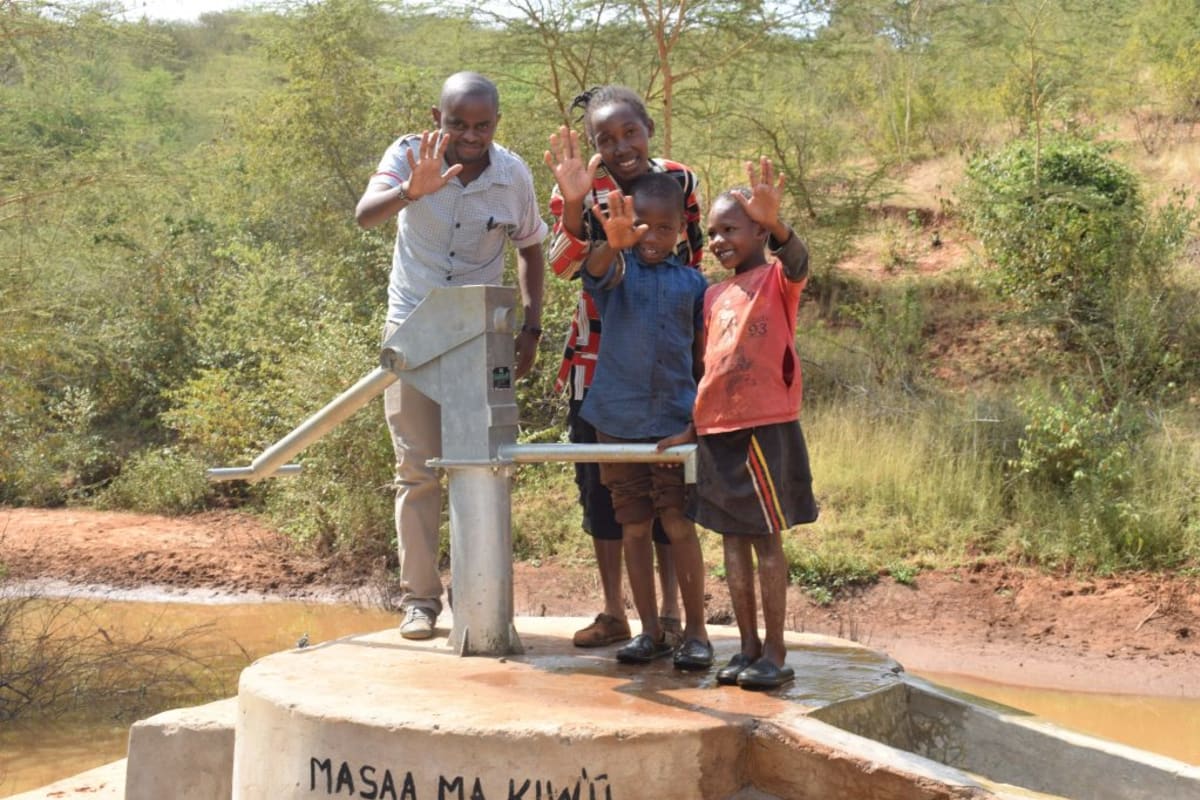This project is a part of our shared program with Africa Sand Dam Foundation. Our team is pleased to directly share the below report (edited for clarity, as needed).
Welcome to the Community
The group was formed in the year 2012. It has a membership of 18, comprised of 10 males and eight females.
As of a survey taken at the end of 2015, the average size of each group member’s household was five. 28% were of ages 20-40 years, while 57% were of the ages 40-55 years. 14% were of the age 55 years and above. Thus, this is fairly a mature group in terms of age, but they are still strong enough and able to execute heavy work such as building sand dams. The group is located in Kathuni Village which now has a population of 250 people.
The main socioeconomic activities for the group members include:
– 14% depend on causal labor. Causal labor is an activity where one engages on household-related jobs which are not always available. These jobs also depend on the season e.g. most causal labor happens during harvest time and planting season.
– 29 % are employed members of different professions e.g. teachers
– 14% operate small businesses
– the majority depend on farming
Agricultural Practice
Agriculture is the main livelihood of the community. As mentioned earlier, the majority of the community depends on agriculture as the sole form of income for their families. The average size of a farm is 2.5 acres. ASDF projects will seek to empower the farmers to practice climate-smart agriculture which entails planting drought-tolerant seeds, planting trees and digging terraces to help keep soil from eroding and boost its fertility.
Yavili Self-Help Group is in its second year of project engagement through the support of ASDF and TWP. A sand dam that was constructed at the end of last year has already greatly served the community. Located in a hilly area, the group’s focus is to rehabilitate its various rivers and streams. The main streams provide water to the community, but as a result of human activity and deforestation upstream, the rivers began to dry. Coupled with sand harvesting, the riverbeds really began to dry up, forcing this community to travel a distance of three kilometers uphill to fetch water. They used their backs to bear the burden of this water since the terrain is too hilly and rocky for anything else.
The first sand dam has brought to life one of the main river channels, with water flowing ever since its construction last year. With water available, the community has started planting trees and vegetables. With more sand dams planned, the group is hoping to increase the amount of water available to meet the diverse needs of farms and households.
Objectives for this community include:
1. Improving the water security in the area by construction of one sand dam and one shallow well to serve a population of 250 people. This will help reduce the distance traveled and time taken to fetch water.
2. Improving on food security by promoting soil and water conservation. Farmers will be supported with terracing tools, trained on digging terraces and using climate-smart agriculture to boost their yields.
3. Increase knowledge on hygiene and sanitation practices through the training and implementation of PHAST. The group will be trained on basic PHAST (Participatory Hygiene and Sanitation Training).
Sanitation Situation
Since this is the second year of community engagement, 100% of households have pit latrines. Thus, open defecation is not an issue. Over 75% of households have a dedicated bathing room for washing.
None of the households have a hand-washing station, but most have helpful tools like dish racks and clotheslines. The community seems to focus more on water treatment, such as boiling before drinking, but does not focus on personal hygiene.
Plans: Hygiene and Sanitation Training
The self-help group members will be trained for two days on hygiene and sanitation. Based on our reassessment of the community, the facilitator will focus on personal hygiene. Disease doesn’t spread just because of dirty water!
Plans: Hand-Dug Well Construction
This hand-dug well will be located adjacent to a sand dam the self-help group is building (click here to see their sand dam project). As the sand dam matures and builds up sand, the water table will rise and the sand will naturally filter water. Water accessed from this hand-dug well will become both clear and safe for drinking.
We expect construction of the well to take one month. It will be lined with concrete and finished with an Afridev pump. We will use monitoring software to ensure that this well doesn't stop providing water to Yavili Self-Help Group and their community.

 Protected Dug Well
Protected Dug Well
 Rehabilitation Project
Rehabilitation Project





















